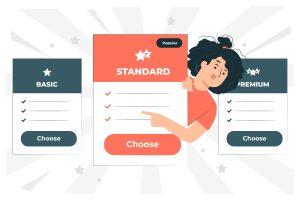The features and functionality of MLM software play a significant role in determining its pricing. Different software providers offer varying sets of features, ranging from basic functionalities to advanced tools tailored for specific MLM business models. Naturally, the more comprehensive and advanced the features, the higher the cost of the software.
Some common features that MLM software may offer include:
When evaluating MLM software pricing, it’s important to consider the specific features your business requires and prioritize them accordingly. Investing in software with the right features can significantly enhance your MLM operations and streamline your business processes.
The scalability and customization options of MLM software are crucial considerations when assessing pricing. As your MLM business grows, you’ll want software that can accommodate an increasing number of distributors, handle higher sales volumes, and adapt to your evolving needs. Scalable MLM software ensures that you won’t outgrow your system and need to invest in a new solution too soon.
Additionally, the ability to customize the software to align with your unique business requirements can be a significant advantage. Customization allows you to tailor the software to fit your MLM compensation plan, branding, and specific workflows. However, it’s worth noting that extensive customization can add to the overall cost of the software.
MLM software can be deployed in various ways, each with its own pricing considerations. The two primary deployment options are:
a. On-Premises MLM Software
On-premises MLM software is installed and hosted on servers within your organization’s infrastructure. This deployment method provides you with full control over your data and software environment. However, it often requires significant upfront investment in hardware, maintenance, and IT resources. The pricing structure for on-premises MLM software usually involves a one-time licensing fee along with ongoing support and maintenance costs.
b. Cloud-Based MLM Software
Cloud-based MLM software, also known as Software-as-a-Service (SaaS), is hosted and managed by the software provider. With this deployment option, you don’t need to worry about infrastructure maintenance or software updates, as everything is handled by the provider. Cloud-based MLM software is typically priced based on a subscription model, where you pay a monthly or annual fee per user or based on your usage.
Both deployment options have their own advantages and considerations, and the pricing will vary accordingly. Assessing your business requirements and weighing the pros and cons of each option can help you determine which deployment model is best suited for your MLM business.





